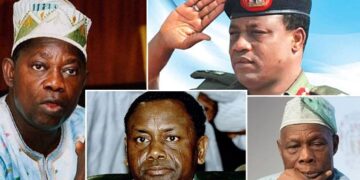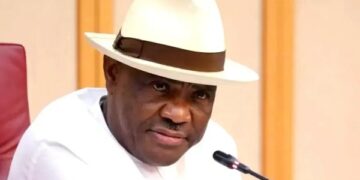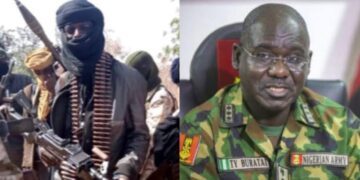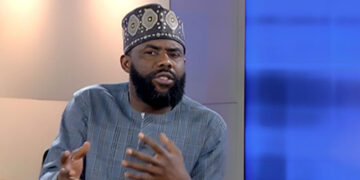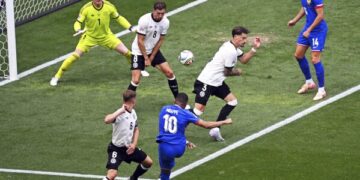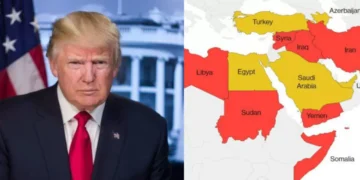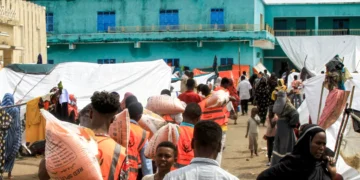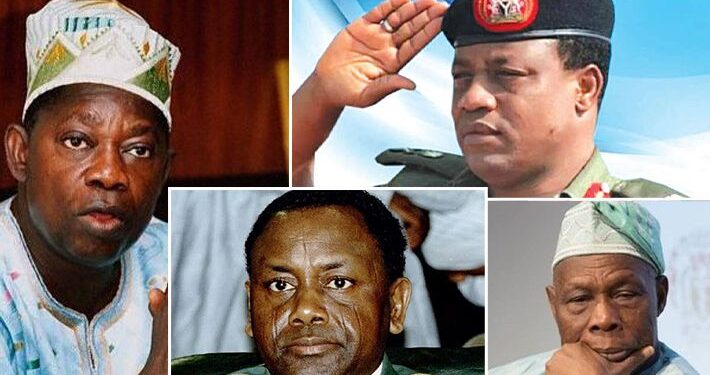Background
Some 32 years ago, Nigeria had a cycle of general elections that were as revolutionary in conception as they were in delivery; they were, and remain, a watershed in Nigeria’s grope to democracy.
Before anything else, let us consider the major features of the polity that gave birth to June 12 as well as the polls themselves (though slant would be on the June 12, 1993 presidential poll).
Some of the key features of the politics that birthed June 12 as well as the polls itself include:
(1) Military Creation
It was the first time in the history of Nigeria that the military, rather than the politicians themselves, formed political parties- the National Republican Convention, NRC, and the Social Democratic Party,SDP. Both were created under the aegis of the Political Transition Programme (PTP) of the self – styled evil genius and then Military President ( the first time an unelected person would bear that title which is reserved for elected substantive Heads of State) General Ibrahim Badamosi Babangida( now retired).
(2) Two Party State
The major direct implication of the action of the military regime by way of the creation of the NRC and the SDP is that, for all practical purposes, Nigeria moved suddenly from a multi – party democracy to a two- party democracy or state.
It is difficult to fully understand, even decades after it took the action,the real motivation of that regime in the direction of which we speak.
However, it may have been partly to ensure enhanced national cohesion ( which a two- party structure, all things being equal, is perceptibly better able to do than a multi- party mechanism) and the need to bring it in tandem with the prevailing situation in some major Western democracies as America ( from where we borrowed our Presidential model of Western democracy), and Britain ( our colonial power from which we borrowed the West Minister or Parliamentary model which we discarded after the First Republic experiment ): both countries operate majorly two party systems.
The two parties were the results of a protracted PTP, which critics say was programmed to failure by a military unwilling to cede power.
(3) Ideological Underpin
Both the NRC and the SDP had a semblance of ideological / philosophical backdrops.
While the NRC was a little to the right of the conservative segment of the political centre, the SDP was a little to the left of the centre:( the Liberal/ progressive).
This meant that while the NRC played shy of full conservatism, the SDP was innately democratic, with a shy peep into progressivism. This way, the parties were able to accommodate the broad spectrum of the Nigerian politician class.
This ideological tilt inherent in the two- party systems enabled them draw up their own different manifestos, based on their ideological tilt.
It must be stressed that the two- party structure enabled the military to curtail the emerging trend of party formation along ethnic/ religious/ geographic lines.
(4) Spread
Both parties had effective presence all over the country and also had strong political leadership structures.
(5) Internal Democracy
Both parties had strong internal mechanisms for effective party administration and , unlike the scenario today, party members, in spirit and letter, deferred to the supremacy of their parties.
This did not mean that members outside of the leadership structure were isolated from contributing to issues affecting the party and its members.No; it only meant that, after all issues are thrashed out, the leadership, not the president, governors or senators, takes responsibility for the subsequent decisions.
The deference to party discipline and party supremacy was equally( together with their ideological roots) partly responsible for the low level of defections in those days, compared to our contemporary national experience.
(6)Party leadership and the ethnic question
Honestly, as an ardent follower of that election cycle and the politics of it, I would not know whether it was by design or accident.
But whatever it was, it proved a great, credible point:.Politicians of that age subsumed the notion of ethnic superiority ( whether defined by sheer demography or geography) under the necessity for efficiency and the overall national interest.
This became manifest when leaders of both parties were picked from the minority ethnic blocks
While the NRC had Architect Tom Ikimi from Igueben, Esanland of Edo State, as its National Chairman, the SDP had Ambassador Babagana Kingibe, a minority from Kanuri in Borno State, as its leader.
Even when Kingibe was picked (over Paschal Bafyau, NLC President) as running mate to Moshood Abiola, another minority ethnic group indigene, Chief Anthony Anenih,again from the same Edo State( Uromi, specifically) became its National Chairman.
Given that party leaders were in control of their parties’ affairs, this development gave enormous power to the minority ethnic groups involved, as well as hope to others that the system would give them their due in due season.
This is a far cry today where party leaders are in the pockets of their governors and ethnic minorities hardly occupy any reckonable positions in parties or even the general polity.
(7) Inter-Party Relations
In spite of the differences in their ideologies and their separate desires to capture political power, both parties, especially at the national level, related warmly. This was particularly evident during the Ikimi/Kingibe era, when both used to ride together in the same vehicle to common occasions and have occasional lunch/ dinner at each other’s houses.
In fact, there was a certain meeting at which both of them, after arriving at the venue in the same vehicle, sat close to each other.
As they bantered, after the serious issues had been discussed, Ikimi reportedly called Kingibe a king.
Apparently lost as to where his friend was drifting, Kingibe sought explanation, following which Ikimi asked to use the ball pen of Kingibe to write down something.
Once he got the pen, Ikimi proceeded to write Kingibe’s name thus: King-I – be( pronounced King I be) by hyphenating Kingibe’.
Of course, the Kanuri man, a wordsmith, jokingly laughed off his head, but did not forget to profusely thank his friend for making him a king even when he had no royal blood in him.
The same pattern of conviviality and commonness of purpose underpinned the relationship between both parties, unlike today when basic disagreements among parties are published ,using the most inappropriate and offensive language that often border on outright vitriolic attacks, depicting mutual acrimony.
Opposition politics do not de-legitimise or criminalise commendation, where desirable, neither does political success criminalise sourcing good leadership ideas from candidates and parties which did not win elections, whether at inter or intra- party levels.
(8) Strong Internal Democracy
Both parties had strong deference for internal democracy. For instance, during the March 21-23, 1993 Convention of the SDP in Jos, Plateau State, there was to be a major crisis when it was alleged that delegates from a particular state were trying to compromise the election for the position of the National Chairman of the party, to the angst of the favourite candidate, Architect Ekong Etuk.
Words went round around 2a.m. of the fateful day, that the Eastern bloc of the party ( jokingly called the CARIA states) had, in anger at the alleged attempt to compromise the poll, threatened to dump the party.
Understandably, there was tension and fear everywhere, hence a meeting of the elders of the party was promptly called to deal with the potent threat. By 4 a.m. when they rose, it was as if nothing ever happened to threaten the party.
That was party discipline and its respect for internal democracy at work.
A similar thing happened during a party election at the ward level somewhere in Plateau State. In spite of mounting pressure from sundry sources, the party leaders kept faith with the decision of members who had voted massively for an ordinary ( apologies for my word) primary school teacher in relation to a ‘popular ‘ General, who was taught the political lesson a lifetime that material wealth is nothing compared to a good name.
(9) Same faith ticket
The June 23,:1993 polls cycle ( the presidential segment of it) was the second time in Nigeria’ s history that a party would field both the main candidate and his running mate of the same religion for the presidential election: Abiola and Kingibe’ shared the same Islamic faith.
The first instance was in 1983:when Nnamdi Azikiwe and Prof Audu Ogbeh, both Christians, ran on the ticket of the same Nigerian Peoples Party (NPP).
(10) An unusual Product of an unusual poll
The eventual outcome of the June 12 poll , which is its controversial annulment, triggered an unprecedented crisis that plunged Nigeria into a clearly uncharted and dangerous terrain. Violence was deployed, mindlessly, to put defeat the popular uprising that greeted its annulment as the military administration hunted and haunted down anyone canvassing the reversal of the annulment and the restoration of the civil rule.
Many things sprang from the annulment and its subsequent effects.
Socially, it created a crisis that caused the deaths of hundreds, perhaps, thousands, of innocent Nigerians, especially students of the University of Lagos,(Unilag) and many, many others who, in the light of the heavy propaganda by then Information Minister, Uche Chukwumerije,of the imminence of war, died in avoidable road mishaps as they scampered to relocate to their ancestral lands.
This was after Chukwumerije visited Edo State Government House,Osadebay House, Benin City, where during a meeting , then Governor John Odigie Evbuonmwanyonwan Oyegun, jokingly told him, ” Uche, I do not envy you. But let me tell you that you people are trying to block a dam that is about to burst” Oyegun’s words turned out to be both prophetically accurate and ironically correct.
This is because the reference to a dam about to burst practically captured, in advance, the high heel opposition of Nigerians to the controversial annulment, and yet ironic, because shortly after the meeting with him ( Oyegun), Chukwumerije,in a surprise move, announced they the Federal Government had uncovered a plot by a disgruntled Lsgis- based politician to create crisis in the country by bombing major cities in the country.
This piece of propaganda, intended to discredit the allegedly disgruntled politician and erode his incredibly large support base, backfired in a sense: it made Nigerians jittery especially after it was a major news item on the day’ s 4 pm bulletin of Radio Nigeria, two of whose staff members ( Reginald Okochi and Orji Ognonnaya Orji) were frequently with the Minister. Following the massive publicity accorded this fake news by the powerful mass media of the Federal Government, Nigerian scampered for safety, many hitting the road in panic, and eventually dying in avoidable crashes as the roads were jam-packed by Nigerians fleeing the imminent war and seeking refuge in the sweet blossom of their ancestral lands.
As the Government House Benin Correspondent of The Nigerian Observer at that time, I was a living witness to most of these things that it has pleased God and Mother Nature to preserve my life to share with you today, and the activities of the Federal Government ( military at that time) gave me first hand personal knowledge and experience of the immense power of the mass media, and what harm they could cause and sustain, out to evil use , including propaganda.
It made me understand why Nigerians, who fought for Biafra during the Civil War, were deceived into believing they were making gains at the expense of the Federal troops, even when they were daily losing territory and strategic assets as troops and military kits and equipment. The rogue station of Radio Biafra, had such gifted Josef Goebbels as Okonkon Ndem, who daily gave the verh false impression of real time Biafran military battleground gains at a time that common sense should have compelled OBuafrsn leaders to face reality, put down their guns and save tens of thousands of innocent Biafran children from avoidable deaths by hunger, diseases and bullets.
But let us return to June 12.
Politically, it led to the dismantling of all democratic structures in the country, triggered the creation of robust opposition, among which were NALICON (The National Liberation Council of Nigeria) led by Prof Wole e Soyinka, the National Democratic Coalition (NADECO), comprising former military brass and courageous politicians , including the President Bola Ahmed Tinubu) as well as Nigeria’ s second rogue radio station,( Radio Kudirat, which was used to wear down the military administration in terms of news, information and propaganda. It was a replica of its predecessor, Radio Biafra of the Nigerian Civil War fame).
Outside of the country, the political and diplomatic effects of the annulment led to the country ‘s isolation by its suspension from the Commonwealth of former British colonies, the only country after Fiji, to have suffered such fate.
The crisis arising from the annulment also led to the controversial institution of an equally controversial administrative contraption by the name of the Interim National Government (ING) by President Babangida, as he stepped aside from office under intense pressure from sundry angles. The ING, itself, led by Chief Ernest Shonekan, former head of the colonial- era trading company, UACN, was sacked on November 17, 1993, by the putsch of the inscrutable General Sani Abacha, who was its Deputy Head.
However, the crisis did not end with Abacha ascending the presidency because his intolerance and hard nose stance approach to the political opposition (typified by assassinations), as well as the doggedness of the opposition, especially the NALICON and the NADECO (the National Democratic Coalition) put it on edge, and it was not surprising that , in still controversial circumstances, General Abdulsalami Abubakar seized power and conducted a brief PTP that led to the Obasanjo presidency in 1999.
Before 1999, some other dramatic events had actually taken place in the polity; General Abacha died in controversial circumstances, just a month before Chief Abiola, winner of the well ordered June 12:poll. Abiola died in state custody in still hazy circumstances during the controversial visit of the top American diplomat, Susan Rice, to the Nigerian government, under Abubakar.
Till date, the controversy over the death of both Abacha and Abiola remains unresolved.
One more thing, though.
The national grief among Nigerians and the fact that he was denied his presidency led the Abubakar government to fashion a transition programme in which only two parties, the PDP, and All Nigerian Peoples Party (ANPP,) fielded only Yoruba candidates in Obasanjo (PDP,) and Former Secretary to the Government of the Federation , Chief Olu Falae( ANPP). It was the first time that would happen in the history of the country and it was designed to assuage the Yoruba for the denial of the Abiola presidency and his still controversial eventual death in state custody
death, a month apart of his traducer, Abacha.
Above all, June 12, in spite of the dogged efforts of the military regimes of Babangida and Abacha as well as their supporters, has become what it truly deserves to be- the watershed in our political history. It is the day Nigerians, from all over the country, buried ethnic and religious sentiments on the altar of the greater national cause.
That greater cause, is the reason that the Muhammad Buhari administration had the courage to name it as Nigeria’ s official Democracy Day, and formally name him ( Abiola)as the official winner of that historic election.
(11) Hypocrisy of the West
June 12 presidential poll was a Nigerian affair.
However, just as vital polls elsewhere, there were great foreign interests that also had a stake., and they included the West, typified by America and the European Union, EU.
However, when Nigerians rose in opposition to its annulment, the West spoke plenty of grammar that added no real value to Nigerian’s efforts to have it reversed.
Shamefully, rather than imposed crippling sanctions on Nigeria’ s military junta, the West began a controversial dialogue with it that ended on an equally controversial product..the death of the President – elect, in state custody and the confinement of that historic poll to the dustbin of history.
Ironically, the same people who betrayed Nigerians and their June 12 efforts, ( for the sake of our crude oil and juicy contracts) are the very countries still dictating the very predicate of our civil rule today, which, compared to June 12, can best be described as dynamic chaos .
How unfortunate!



